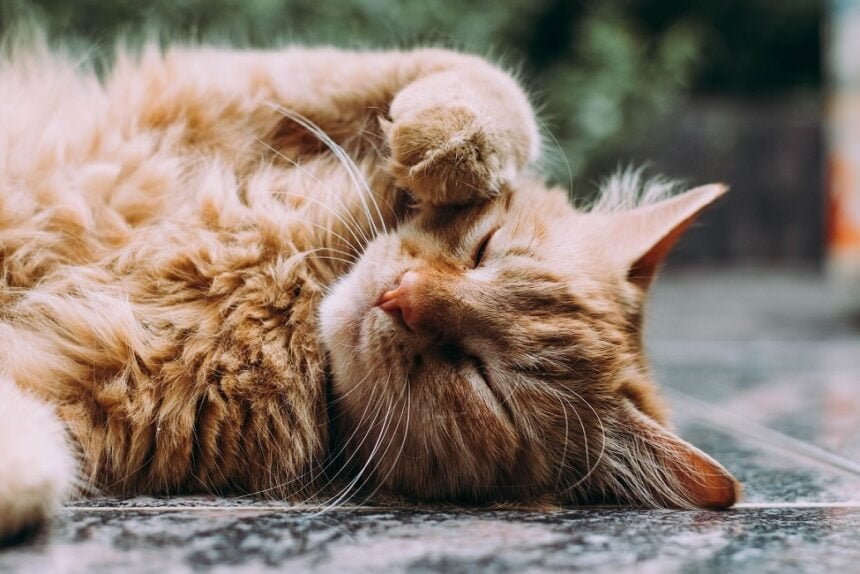As a pet lover, I know how concerning it can be when our furry friends exhibit unusual behaviors. One such behavior that can be particularly worrisome is excessive sneezing in cats. If you’ve found yourself asking, “Why is my cat sneezing so much?” or “When should I worry about my cat sneezing?”, you’re not alone. In this article, we’ll explore the possible causes of excessive sneezing in cats, discuss when to seek veterinary care, and provide tips for helping your feline friend feel better.
Possible Causes of Excessive Sneezing in Cats
Allergies
Just like humans, cats can suffer from allergies. Common allergens for cats include pollen, mold, dust, and even certain foods. If your cat is sneezing a lot, especially during specific seasons or after exposure to certain environments, allergies could be the culprit.
Upper Respiratory Infections
Upper respiratory infections (URIs) are a common cause of excessive sneezing in cats. These infections can be caused by viruses, bacteria, or fungi, and often result in symptoms such as sneezing, nasal discharge, and congestion. If your cat is sneezing a lot in a row and displaying other signs of illness, a URI may be to blame.
Foreign Bodies
Cats are curious creatures, and sometimes their curiosity can lead to foreign objects becoming lodged in their nasal passages. This can cause irritation and inflammation, leading to excessive sneezing. If your cat is sneezing a lot and you suspect a foreign body may be the cause, it’s essential to seek veterinary care promptly.
Dental Issues
Dental problems, such as tooth abscesses or gum disease, can cause inflammation in the nasal passages and lead to sneezing. If your old cat is sneezing a lot and has bad breath or difficulty eating, dental issues could be the cause.
Irritants
Cats can be sensitive to various environmental irritants, such as cigarette smoke, cleaning products, or perfumes. Exposure to these irritants can cause sneezing and other respiratory symptoms. If you’ve recently introduced a new product into your home and your cat is sneezing a lot, it may be worth considering whether the product could be causing irritation.
When to Seek Veterinary Care
It’s essential to monitor your cat’s sneezing and overall health closely. If you’re wondering, “When should I worry about my cat sneezing?”, here are some signs that it’s time to consult a veterinarian:
- Sneezing is accompanied by other symptoms, such as coughing, nasal discharge, eye discharge, or fever.
- Your cat is sneezing blood.
- Sneezing is persistent and doesn’t improve after a few days.
- Your cat is experiencing difficulty breathing or is lethargic.
- You suspect a foreign body may be lodged in your cat’s nasal passage.
Tips for Helping Your Cat Feel Better
If your cat is sneezing a lot, there are several steps you can take to help them feel more comfortable:
- Keep your home clean and free of allergens by vacuuming and dusting regularly. Use air purifiers to help reduce airborne irritants.
- Avoid using strong-smelling cleaning products, air fresheners, or candles that could irritate your cat’s respiratory system.
- Provide your cat with a comfortable, stress-free environment. Stress can exacerbate sneezing and other respiratory symptoms, so make sure your cat has a quiet, cozy place to rest.
- Encourage hydration by providing fresh water daily. Staying hydrated can help thin mucus and reduce congestion.
- If your cat is experiencing nasal congestion, you can use a humidifier or place them in a steamy bathroom for short periods to help alleviate symptoms.
- Consult your veterinarian about appropriate treatments for your cat’s specific situation. This may include medications, such as antihistamines or antibiotics, or recommendations for dietary changes if allergies are suspected.
Conclusion
Excessive sneezing in cats can be caused by a variety of factors, from allergies and infections to dental issues and environmental irritants. As a pet lover, it’s essential to monitor your cat’s health and seek veterinary care when necessary. By understanding the possible causes of your cat’s sneezing and taking steps to address them, you can help ensure your feline friend stays happy, healthy, and comfortable.







